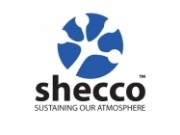This article published on the B2B website ammonia21.com reports about the End-Users session on the second day of ATMOsphere Europe 2011 where several unique perspectives on natural refrigerant projects were gathered. Presentations from The Coca-Cola Company and Unilever voiced a clear commitment to natural refrigerants, whilst CSR-i explained their value to “future proof” a business. Robert Wiseman Dairies were invited to present a pioneering ammonia heat pump project.
In a lively second End User Panel session chaired by Paula Widdowson from CSR-i, the return on investment of natural refrigeration projects was highlighted as a key issue for one end user, whilst two of the founding companies of Refrigerants Naturally! spoke of their aim to send a clear signal to industry of the direction they are moving: natural refrigerants. Below, ammonia21.com reports on two of the panel presentations relating to ammonia refrigeration.
Robert Wiseman Dairies, Neil Hughes, Engineering Director
Neil Hughes from Robert Wiseman Dairies, the largest fresh milk producer in the UK, presented an innovative ammonia heat recovery unit installed in partnership with GEA. Over the past five years Wiseman have invested £5.2 million in natural refrigeration systems and the company objective is to replace all man made refrigerated systems with natural refrigeration by 2030.
The focus of Mr Hughes’ presentation was a project to replace 3 ageing R22 water-cooled chillers with a central ammonia based refrigeration plant. Although the proposed projects would give significant performance increases, the increased capital cost resulted in a poor return on investment of 11 years. So, Robert Wiseman Dairies challenged their suppliers, companies like STAR and GEA, to improve the return on investment.
In a typical dairy a boiler is used to generate steam, which is used to pasteurise the milk, and through refrigeration the heat is removed using an evaporative condenser. Overall there is a lot of waste in this process. To improve the process a heat pump was put forward as a solution for the dairy’s heating requirements, providing 80°C water for the pasteurisation process to replace the steam. By using an ammonia heat pump, there was no need for a boiler therefore displacing a significant amount of gas and improving the payback.
The end result was:
- A saving in CO2 per year 1,135,000kg
- A net reduction in electrical energy for refrigeration and heating of 20%
- A reduction in gas usage of 52% from 6,470 CU. FT to 3,200 CU. Ft (52%)
- A water reduction of 50%
According to Mr Hughes presentation, “Senior Management and the Board of Directors were very supportive, customers were very interested in the technology and potential energy savings”.
As to whether the Dairies would invest in again in a similar project, Mr Hughes said, “We need to recover our investment… we are not sure we will [replace 3 more HFC systems with ammonia] at the moment. There is no guidance on HFC replacements or strategies or taxes… I need to see something coming back that will guide us along the road to what we do next. We need the incentive to invest… It’s a lot of money to spend on things that have got minimal payback.”
Unilever Sustainable Living Plan and Natural Refrigerants, Thomas Lingard, Global Advocacy Director
With the chairmanship of Refrigerants Naturally! Thomas Lindgard from Unilever presented an overview of Unilever and the company’s Sustainability Living Plan, launched in 2010.
Unilever aims to double the size of the business whilst at the same time reducing the environmental impact. By 2020 the company aims to:
- Halve the environmental footprint of their products
- Source 100% of agricultural raw materials sustainably
- Help more than one billion people take action to improve their health and well-being
According to Mr Lindgard all of Unilever’s industrial refrigeration plants use ammonia, and it is considered “THE sustainable refrigerant for the past, present and future”. Having already selected a low global warming potential (GWP) and zero ozone depletion potential (ODP) refrigerant, even before there were concerns regarding fluorinated refrigerants, the focus for Unilever at its manufacturing plants is to improve efficiencies and manage safety. With refrigeration accounting for over 50% of the electricity use of the factories, improving efficiency is an important issue for Unilever.
In addition to improving its o refrigeration facilities Unilever is working collaboratively through Refrigerants Naturally! set up by Unilver, Coca-Cola and McDonalds, to share information at a global level about the barriers and opportunities to accelerate the natural refrigerants agenda.
Earlier this year Refrigerants Naturally! outlined a new statement of purpose, focusing on:
- Strengthening the advocacy and communications at an international level to accelerate market penetration of natural refrigerants;
- Sharing technical knowledge;
- Establishing public policy support
- Supporting network development.
In finishing his presentation Mr Lindgard made clear that for Unilever HFC-free excludes HFO refrigerants and that Unilever has taken a clear policy decision in favour of natural refrigerants.
